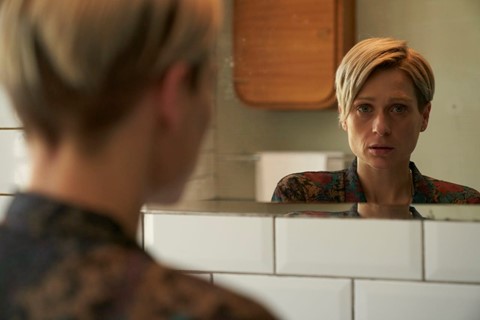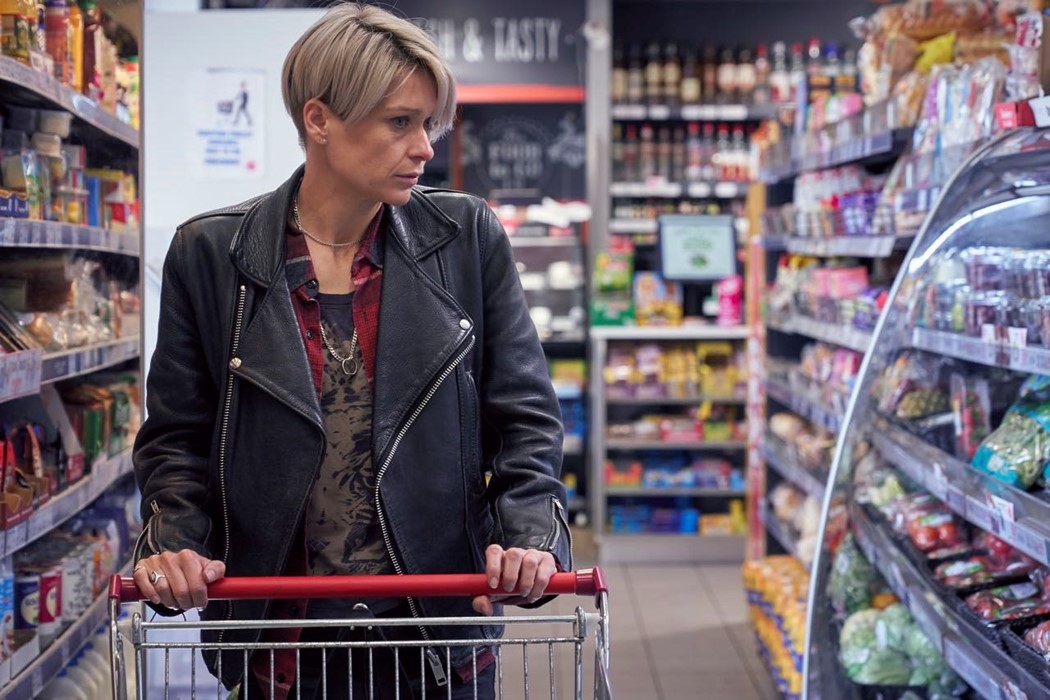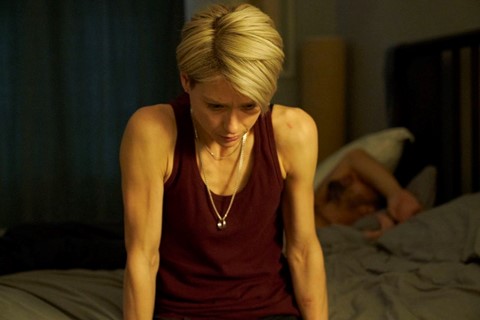Director Lucy Brydon opens up about her film Body of Waters, which follows the story of a woman trying to overcome her personal demons
“It was between us and another group, and it got to the point where you were almost begging them to make their decision,” says Lucy Brydon. “The pressure was so intense.” We’re talking about Film London’s Microwave scheme, a grant which provides funding and mentorship for creators to make their first micro-budget feature film. It’s a prestigious programme – previous alumni include Hong Khaou’s Lilting (a Sundance award-winner), Eran Creevy’s Shifty (a BAFTA-nominee) and Ben Drew’s Ill Manors (a three-time BIFA nominee) – and for Brydon, being accepted was a defining moment in her fledgling film career. “Getting onto Microwave was incredibly affirming, it was a huge honour.”
The story that Brydon pitched is a dark and powerful meditation on eating disorders. Pushing past dangerous tropes about teenage girls struggling with their weight, Body of Water examines the lasting impact of anorexia on a mother, Stephanie, her daughter, Pearl, and grandmother, Susan. It’s a catalogue of small, everyday struggles, sensitively framed to dig deeper into the ways in which one woman’s addiction can pollute otherwise healthy family relationships. “The film is about a woman trying to overcome her personal demons,” says Brydon. “Stephanie’s manifests itself as an eating disorder, but I feel like it could be anything really.” Careful to avoid sensationalising or fetishing the topic, Brydon drew on Paddy Considine’s Tyrannosaur and Todd Haynes’ Safe as inspiration for how to handle such delicate material. “To The Bone was quite troubling,” she says. “Several teenage girls I spoke with told me they’d watched it obsessively and were really into her behaviour. Most of the films I watched were about addiction. It’s such a similar thing, an addiction to starving yourself.” Body Of Water – named Sick(er) at the time – was financed with £100,000 alongside another feature, Looted, a film about crime, morality, friendship and thieves who fall out.

The programme, was at times, a gruelling process with dozens and dozens of drafts of a single script. “As a creative person you put a lot of yourself into things,” says Brydon. “Sometimes, if people have had a shit day and they’ve not read it in the right mood, you end up taking it to heart. It feels like Sisyphus, you think ‘I’m never going to finish this fucking thing’, but eventually you do.” There were moments when the debut director began to question her story. “I think it’s a really common feeling, that you have a tendency to say ‘I don’t know what the right answer is for this story’ and so you over-listen to advice. You write drafts according to every set of notes that you get, and you drive yourself a bit mad. You think, this person must be right because they’ve been working longer than you, or this person must be right because they’ve released more films than you... It just goes round in circles.”
Brydon would finish what she calls “what-the-fuck” drafts – versions of the story where nothing is sacred, everything gets chopped up, switched around and reorganised. At times she experimented with a coming-of-age story, focusing on the daughter Pearl, rather than her mother, Stephanie. She tested different endings, some were bleak, others were brave. “Ultimately you know what it is that your characters want to do,” she says, “I gradually became more sure of myself and my ideas. It’s disingenuous when dealing with a topic like this to say, ‘right, in 90 minutes she’s going to get fixed’.”

Like many first-time creators, Brydon drew on personal experience to help shape some of the smaller details. “It’s not about me, but there’s the truth of the artist in it. I feel like it was quite cathartic to write,” she says. The family dynamics, in particular, were in part informed by Brydon’s evolving relationship with her mother. “There’s some dark stuff, especially with the complexities of the family relationship,” she says. “That’s definitely something I know about and have experienced. Stephanie and Pearl clash, in part because they share so many similarities with one another – something I recognise in my relationship with my mother.”
Finally, after more than five years of writing, casting, shooting, editing and mixing, all that work is beginning to pay off. This year, Body of Water will have its world premiere at the Glasgow Film Festival – Brydon’s debut feature is being screened alongside a host of women-directed international films – and her story is already beginning to secure a spread of glowing reviews. “It’s not perfect,” says Brydon, “but it’s an authentic expression of what I wanted to say. We were able to take creative risks, and I’m really happy with how those decisions turned out.” Alongside working with Netflix to create content for Sex Education, Brydon is already developing other feature ideas and television projects. “Easily the most useful thing I’ve learnt throughout this process is to trust your gut,” she says. “Go to a quiet place, sit and just listen to your belly. You have to grit your teeth and push through the difficult times. That, and learn how and when to tell people to fuck off.”
Body of Water screens at the Glasgow International Film Festival on February 27 and 28, 2020. Head here for tickets.
